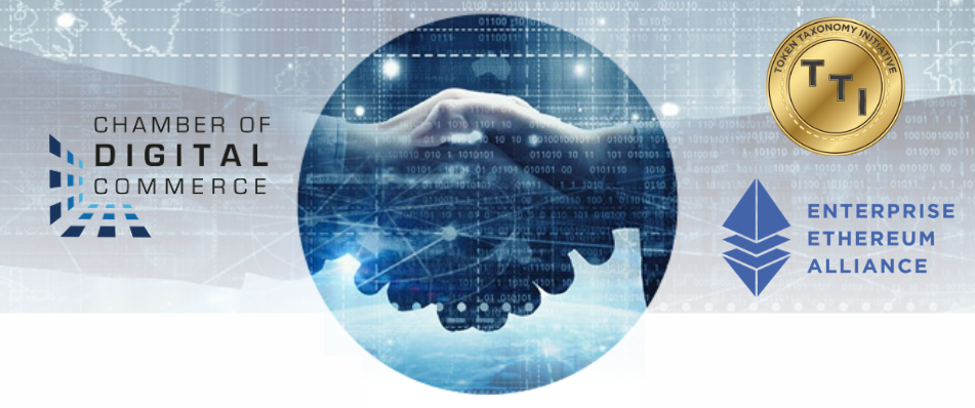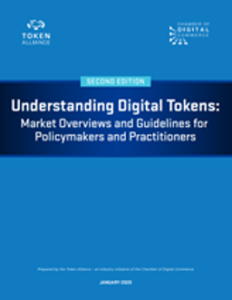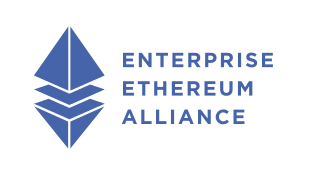 As part of the EEA’s strategic partnership with the Chamber of Digital Commerce, the Chamber has made its report, “Understanding Digital Tokens,” available to the EEA and TTI communities.
As part of the EEA’s strategic partnership with the Chamber of Digital Commerce, the Chamber has made its report, “Understanding Digital Tokens,” available to the EEA and TTI communities.
Below, the Chamber’s Founder and President Perianne Boring provides an overview of the report and the overall regulatory and market landscape of the token ecosystem.
Understanding Digital Tokens: An Overview by Perianne Boring
One of the most striking developments in the blockchain ecosystem is the emergence of token technology platforms, which are offering transformative possibilities for government, business, and consumers. Blockchain technology will improve many aspects of our lives, much of which will be fueled through the distribution and use of digital tokens.
Yet, the versatility of tokens has proved to be a challenge for regulators. The sheer number of unique characteristics that tokens may represent means that much work remains to be done to understand their potential and functionality. The way in which digital tokens operate is complex and can maintain multiple characteristics – from an investment contract, to something necessary for utilizing a digital platform, to a form of payment or exchange.
Simply put, a digital token can be a security, a currency, a commodity, property, or a hybrid of these characteristics. Some have even suggested that a token may start as one functionality, such as a security, and then shift and represent another, such as a commodity. When it comes to the regulatory treatment of a token, this versatility can be confusing. Nevertheless, other countries are already recognizing the potential of this technology and developing regulatory systems to welcome it.
To address these issues, we established the Token Alliance, an initiative of the Chamber of Digital Commerce comprised of more than 400 industry leaders. Under the leadership of former SEC commissioner Paul Atkins and former CFTC Chair Jim Newsome, the Token Alliance has published a series of reports entitled, “Understanding Digital Tokens: Market Overviews & Guidelines for Policymakers & Practitioners,” which includes the following chapters.

- Considerations and Guidelines for Securities and Non-Securities Tokens – describes securities tokens with corresponding guidelines related to the legal and regulatory frameworks that apply to them. It also details the application of the securities laws, regulations, and rules of the United States for the issuance and trading of tokenized securities. Provides guidelines for non-security token sponsors and token trading platforms for the generation and distribution of digital tokens to enable responsible governance and help to minimize fraud in the industry.
- Market Overviews and Trends in Token Project Fundraising Events – presents economic and market trends, facts, and figures from 2013 to the present to better understand the scope of the growing token evolution.
- Considerations and Guidelines for Anti-Money Laundering Compliance and Combatting the Financing of Terrorism – provides an overview of laws in the United States aimed at the prevention of money laundering and combatting the financing of terrorists, as well as the rules and regulations certain categories of businesses must follow to establish formal AML policies and practices. This section includes guidelines for token sponsors and token trading platforms to consider when crafting AML and CFT compliance programs.
- Considerations and Guidelines for Consumer Protection – evaluates how consumer protection laws may apply to digital tokens, the potential scope of federal and state consumer protection authority, and guidelines to help token sponsors and token trading platforms avoid running afoul of consumer protection laws.
- Considerations and Guidelines for Advancing Cyber Security – considers the substantial rise in the frequency and impact of cybersecurity breaches across industries and how these events have extended into the token economy. This section discusses cybersecurity considerations for permission-less blockchains, policy and regulatory considerations, and guidelines for advancing cybersecurity in a tokenized economy.
- Global Legal Landscapes Governing Digital Tokens – an analysis of legal landscapes governing Australia, Canada, Gibraltar, Japan, United Arab Emirates, United Kingdom, and the United States
It is important that regulations impacting tokenized networks and applications take into account their versatility, unique characteristics and benefits. It is equally important that the industry understands the regulatory considerations when building with blockchain technology. The Chamber of Digital Commerce and Enterprise Ethereum Alliance recently announced a partnership to facilitate collaboration between the technology and policy communities. We hope you find these resources valuable and look forward to working with the EEA community to ensure we have predictable legal frameworks that support innovation and development in the blockchain technology ecosystem.
Join the Chamber at DC Blockchain Summit 2020, March 11-12, where featured panels will dig into token-related topics including “Token Jurisdiction: Deep Dive into SEC and CFTC Oversight” and “The Future of Money.” View Understanding Digital Tokens and read more about the Token Alliance on the Chamber’s website.

